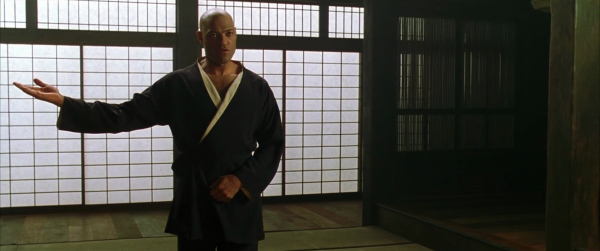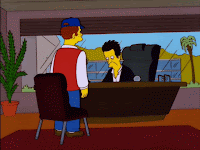Wanted to try out a sort-of new analogy. Congratulations! You’re all my test subjects.
I’m going to make a bit of a leap here and assume most of you reading this know how to drive. Just, y’know, basic driving. A car. A pick-up. Maybe some of you even know how to drive a motorcycle.
I’m also going to assume most of you have a degree of experience at driving. You’ve been doing it for a while. Yeah, there’s a chance one or two of you are still in high school and only just got a learner’s permit, but the general vibe I get here in the comments—and from my readers in general—is most of you are solidly in the “adult” demographic, which means I can say you’ve probably been driving for at least a decade. You’ve got a license and got a solid feel for it. We can put you behind the wheel of a car and you can follow the rules of the road.
Of course… well, let’s have a little moment of honesty here. We’re all friends, right? We trust each other to a certain degree? And we can all admit that maaaaaaaybe we don’t always follow the rules of the road.
No. No we don’t. Come on, we said we were going to be honest. Okay, look. Quick show of hands. Just put your hand up, nobody else can see it. Well, I mean, all those people there at work, but they don’t know why you’re doing it. If they ask, tell them you’re stretching.
How many of us have broken the speed limit in the past week?
Don’t nitpick. It doesn’t matter if you were only going five miles over or that there wasn’t anyone else on the road at the time. Going over the limit means you broke the speed limit. So put your hand up if you’ve done it in the past week.
Yeah, that’s what I thought.
Oh, of course I’ve done it too. I’m not lording it over anyone.
I’m sure more than a few of us have also failed to come to a complete stop at a stop sign. Made a U-turn we weren’t supposed to. Let’s not even getting into signaling for turns or lane changes.
Now here’s the thing. We all know this is wrong. We know we’re breaking the rules. But we keep doing it. And a lot of the time, we get away with it.
Why?
Well, a lot of it ties back to the experience thing I mentioned up above. Yeah, we were all taught the rules by a relative, in a drivers’ ed class, or maybe from a friend. We had to demonstrate we knew the rules to get our license.
And most of the time we need to follow the rules. I can’t just decide red lights and stop signs don’t apply to me anymore and plow through ‘em all at full speed. Eventually that’s going to catch up with me. So to speak.
But the thing is, once we’d been out on the road for a while, we started to see there’s still a degree of flexibility. Like driving on the freeway. Ten, fifteen miles an hour over? It’s breaking the rules but it’s also… just kind of accepted. We all do it.
Because we’ve all learned when and where it’s acceptable to break the rules of the road. When it’s going to make my driving experience a little faster or easier without hurting anyone. We know we can be a little excessive on the freeway, but we should probably rein it in a bit in school zones and parking lots. Making that u-turn on an empty road in the middle of the night isn’t the same as making it at lunchtime in heavy traffic. We understand why why it’s okay to do it here, but not here.
Let’s have one more moment of horribly honesty. Some folks get caught speeding and get a slap on the wrist. Other people get large tickets. Or worse. The ugly truth is, some people can get away with breaking the rules just because of who they are. Doesn’t mean the rest of us get to break them in the same way. Sucks, but that’s the way life goes sometimes.
And yes… there’s definitely someone out there who taught themselves how to drive and didn’t bother getting a license and drives 83 miles per hour past the school and the police station every day and they’ve never gotten a single ticket. Hopefully it’s clear this person is a rare exception, not a role model. Please don’t follow their example.
Now, hopefully you see where I’m going with this.
Y’see, Timmy, there are rules to writing. Absolutely, no questions, no arguments. There are rules, we need to know them, we should be able to pass a basic test on them. And a lot of the time we’re going to have to follow these rules to some extent or another.
But…

Once I’ve done this for a bit, I’ll get a sense of when and where I can bend those rules. Or break them. Or flat out shatter them. And I’ll know I’m totally, 100% justified in doing it. I’ll be able to tell you exactly why it’s okay. Yeah, the rule says do this, but I’m doing this because it’s better for the dialogue, the flow, the suspense, or what have you.
I definitely don’t want to break a rule and then just say “ehhhh, I don’t know why. I just felt like breaking it. Shake things up a bit, y’know? I’m disrupting storytelling.”
That’s not going to go over well.
Next time…
Well, there’s a whole aspect to this rules thing I just barely touched on, so next time I think I’m going to talk about why Doctor Watson told all those stories about his old roommate.
Until then, go write.






